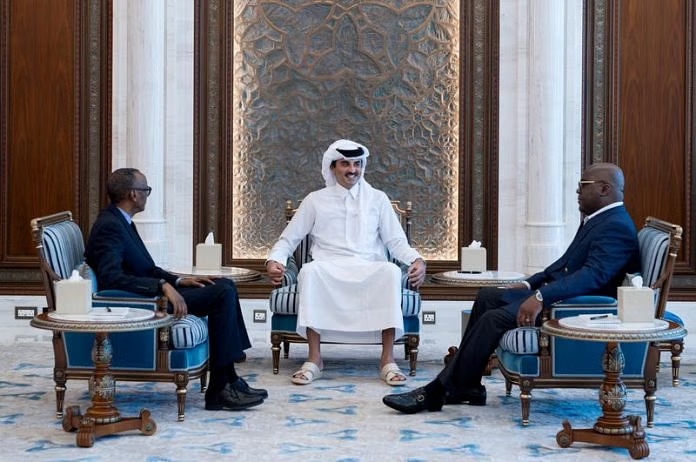The Democratic Republic of Congo and the M23 rebel movement have issued a rare joint commitment to halt hostilities, following over a week of indirect negotiations in Doha, Qatar. The agreement, released Wednesday in matching statements by both parties, offers a tentative opening toward resolving one of the region’s most entrenched conflicts.
The statements, which emerged after both delegations concluded their discussions and left Qatar earlier this week, reaffirmed a shared pledge to end fighting immediately, reject hate speech and intimidation, and urge local communities to support peace efforts.
Although the language marked a shift in tone, negotiators expressed frustration with the slow pace of the process, noting that several core issues remained unresolved.
The talks were initiated in the wake of intensifying clashes since January, when M23 launched a sweeping offensive across eastern Congo. The group seized control of the region’s two largest cities, resulting in thousands of deaths and displacements. The escalation has raised alarm across Central and East Africa, with fears of a broader regional conflict mounting.
Doha’s diplomatic engagement followed a surprise meeting last month—also brokered by Qatar—between Congolese President Félix Tshisekedi and Rwandan President Paul Kagame. The two leaders jointly called for a ceasefire, breaking months of silence and opening the door to indirect dialogue with M23, a group Kinshasa had long branded a terrorist organization.
Rwanda continues to deny any involvement with the rebels, maintaining its military presence near the border is a defensive measure against Congolese troops and Hutu militias linked to the perpetrators of the 1994 Rwandan genocide. However, the United Nations and several Western powers have backed Kinshasa’s claim that Kigali is providing military support to M23.
Despite the symbolic joint declaration, deep divisions remain. Delegates said discussions were hampered by disputes over possible confidence-building steps—including calls by M23 for the release of detainees accused of collaborating with the rebels or Rwanda.
“They’re overreaching,” a Congolese official said. “They don’t even control a tenth of the country. Our judiciary is independent. Justice must be served.”
An M23 representative countered that the talks collapsed when Congo refused to entertain measures that would demonstrate goodwill. “Once prisoner releases were ruled out, there was no space left for genuine negotiations,” the source said.
Qatar’s mediators ultimately pressured both parties into issuing a joint statement, seen by diplomats as a minimal but vital step toward a broader ceasefire agreement.
“This is a fragile but necessary move,” said Belgian Foreign Minister Maxime Prévot in a post on X. “The region needs peace, and this could be a start.”
Yet signs of renewed conflict emerged almost immediately. A UN source confirmed fresh fighting had erupted in Walikale, a strategic mining town in eastern DRC. M23 forces had previously withdrawn from the area earlier this month, calling it a goodwill gesture to pave the way for talks.
With tensions still high and major sticking points unresolved, observers caution that without concrete steps and continued international pressure, the peace process could falter as quickly as it began.



